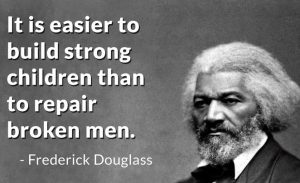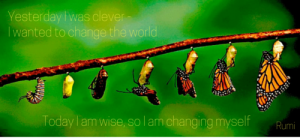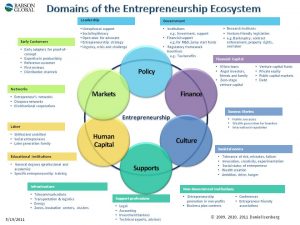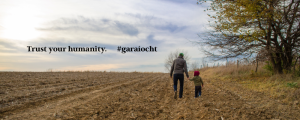 Many of you post these images regularly – from the safety of your American homes. Please rethink them.
Many of you post these images regularly – from the safety of your American homes. Please rethink them.
I used to live there – now Ireland is my home. It has been since November 2008.
It is not always safe here on the border. Our world is different than yours.
I live and work between Dublin and Belfast. I am privileged to carry both US & Irish Passports.
The UK government honors my Irish Citizenship conferring upon me every right of her citizens. I was welcomed when I established my business in County Down. I have been as free to live in Northern Ireland as the Republic.
We are 32 counties of residents on the island of Ireland. 17% of us were born elsewhere.
Our average life span is 80 years; longer than yours. We all have a vote. We could even vote to unite Ireland. Take a long view – it will likely happen. The island has been populated for over 12 thousand years. The British have been here only 850.
Governments in the 21st century amount to “taxing authorities”. We don’t raise armies to protect these borders, we live in the EU. Our borders are collectively protected.
Things are better in the Republic for Protestants and in the North for Catholics* than for African Americans across much of the US – So I’d argue your civil rights movement needs your attention more than ours.
Consider this:
- In NI we don’t pay our own way – the UK government (and every British taxpayer) subsidises 70 p of every £1 floating through our economy.
- In the Republic we have mortgaged our grandchildren’s futures to bail out the excessive spending of the “boom”.
Try this:
- Ask a patient on a gurney at an A&E (ER) in the Republic if they’d cross the border for better medical care?
- Ask a dole recipient on either side of the border if their Northern/Southern neighbours have a better deal. Then ask either government if they could afford the burden of more mouths to feed and care for?
- Ask a US or other foreign corporations in the Republic employing thousands and contributing millions to the economy if they’d have come to the 6 counties given the higher corporation tax?
- Then ask those corporations located across Northern Ireland if they would have gone to the Republic without the heavy subsidies the UK government offers for R&D, training and facilities.
STOP the madness, please. There is not a strong enough political class anywhere on the island of Ireland to effectively govern a single county, no less the 32.
- Leave us to our learning curves – let us do what it takes to survive. Consign your leftover venom & bile to history.
- Your rhetoric inflames your compatriots here to build bombs, kill innocents and wreck our recovering economies.
- You foment this hate from safe living rooms amid ample resources and opportunities.
This is Ireland in the 21st century, our young people united in sport, the Queen at Croke Park and with the Minister and Deputy First Minister of Northern Ireland touring the now restored Crumlin Gaol. Having both spent time there during the Troubles, they used the occasion to thank her for her hospitality.(Both served time)
I’m sorry our ancestors emigrated to America under duress. I’m sorry you are emotionally stuck in the pain of their loss. I’m sorry you have not made peace with Ireland’s political reality in 2015.
These images are not icons of nationalism. They are hate speech. That you would encourage violence to be visited upon yet another generation is despicable.
If you passionately believe in a “united Ireland” then come. Move here, work for a political solution, work to bring out the vote and work for an economically sustainable Ireland.
In the meanwhile – do not overtly or inadvertently encourage violence. Do not encourage or support dissident activity. And do not undermine the Police Service or either government.
Here’s why:
The Wikipedia entry for the activities of just one dissident group in the 6 years between my arrival & November 2014 is over 2500 words.
The heinous acts committed by “other” dissidents encouraged by the rhetoric of 26+6= 1 over the same 6 years, are not even included.
Let me introduce you to Northern Ireland men Ronan Kerr, Omagh, David Black, Cookstown and Stephen Carroll, Banbridge. All are dead. All killed at the hands of madmen (and women) in service of this rhetoric.
Mark Quinsey, Birmingham and Patrick Azimkar, London were young sappers stationed here in 2009 and due to ship out to Afghanistan the next day.

More than likely their families had not yet begun to pray for their safe deliverance from extremist terrorists.
Life here is far from perfect – but since the signing of the Good Friday Agreement things have and continue to be improved. Many like me work tirelessly to see that this continues.
Learn from the best among us!
Take Maeve Aine Kerr, the mother of murdered Catholic police officer Ronan Kerr. Pictured here, she has born this tragedy with dignity and grace collecting his University Degree at the commencement he didn’t live to see – and still urging more Catholics to join the Police Service of Northern Ireland (PSNI).
In November 2014, 12 “dissidents” (read terrorists) were arrested in Newry and more weapons were seized in Dublin.
Deputy First Minister Martin McGuiness’ whose life is regularly threatened – was threatened with an RPG in February 2015. How many innocents would likely die in the fallout of a rocket propelled grenade? How many RPGs might the dissidents possess?
Nothing changes here until we, our emigrants and the descendants of generations of our emigrants begin to care more about our collective, living children than we or they, hate the enemies of our ancestors.
The centenary of the Easter Rising next year will be enough of a flashpoint. In the meanwhile, please respect our need to build bridges and not intimidate our neighbors.
I will return to America at least three times between now and that centenary. I will likely visit New York, Philadelphia, New Orleans, Florida, Chicago and San Francisco. I am happy to continue this conversation in person. Get in touch. Email eve@eveearley.com or contact me via Twitter, Facebook or LinkedIn.
* See graph p 25 of linked article.











 A linguist, musician and a coach he reflects on Garaiocht as a deeply hopeful value which allows an understanding of the possibility of potential and an openness to a deeply hopeful future.
A linguist, musician and a coach he reflects on Garaiocht as a deeply hopeful value which allows an understanding of the possibility of potential and an openness to a deeply hopeful future.